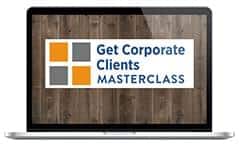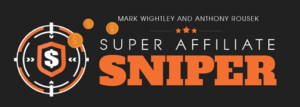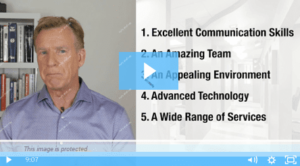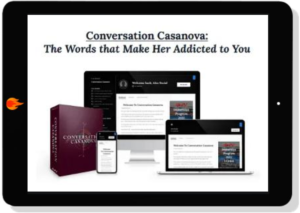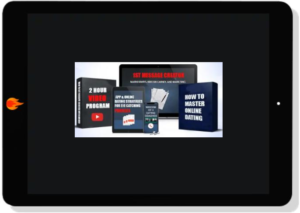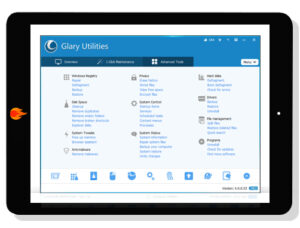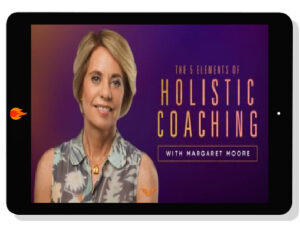Just One Corporate Client Could Equal 100 Individual Clients for Your Coaching, Consulting, or Freelance Business
…Small, Medium, and Large Businesses Have Budgeted Over 8 BILLION Dollars to Spend With Outside Experts Like You This Year
It can be hard when you first start your business or launch your new offer.
You are all excited about the possibility of serving and helping a lot of people.
You sign up for courses to learn what you need to do make it all happen.
You get all excited researching and creating and figuring out how to bring this whole vision you have to life.
And, then you hit a wall and everything stalls.
It seems like everything is taking longer than you thought it would to get your work out there in a big way.
Every day you look at your long checklist filled with tech stuff you know needs to get done to make the leap and you don’t know how to do it and don’t have the budget to pay someone else to do it for you.
Many of the clients you attract don’t have the money to go deeper with you…even though they want to.
And, this means that most days you just feel overwhelmed.
It’s Critical That You Stay in Your Zone of Genius in Your Business.
The more time you spend actually helping your clients get results, the better you feel and the faster your business grows.
The ability to stay in your zone of genius comes from having enough sales to have other people do the things in your business that aren’t in your zone.
Hooking up that sales page, creating that ad campaign…
What if you only focused on working with great, highly committed clients and had more than enough revenue coming in to make your dream income AND outsource all the stuff you don’t want to do?
How much easier would this all be if you had a handful of really high-paying clients that funded the growth of your business?
Here’s the truth: There are experts just like you who are working with small, medium, and large sized businesses who think nothing of investing $10k, $20k or even $100k on courses, coaching, and consulting. These businesses are right in your backyard AND you can reach them without a sales funnel or ads or any tech-based marketing system.
Why Should You Sell YOUR Expertise to Associations, Non-Profits, Small, Medium, and Large Businesses?
Just ONE Corporate Client Could Equal 100+ Individual Clients
One corporate client might buy 100+ seats in your online course.
Or, they might put 10 executives through your one-on-one coaching program.
Or bring together 100 people to experience your workshop.
The opportunities are endless when you know how to package and price the right solutions.
You Don’t Need an Online Funnel to Sell Your Expertise to Small, Medium, or Large Businesses
Your funnel for selling to small, medium, or large businesses can be as simple as email and your phone.
You don’t need to invest in any tech tools or hire a large support team.
And, you can set up this low-tech system in days or weeks.
You Already Have Relationships in Your Own Backyard You Could Turn Into Corporate Clients
Whether you’re aware of it or not, you have many opportunities to sell your expertise in your local area.
It only takes one short sentence about what you do to have someone ask you, “Do you work with businesses like mine?”.
The local chapters and regional offices of bigger businesses are right in your backyard (and are often the best way to start relationships with larger companies).
Everyday Interactions in Your Local Area Can Turn Into Lucrative Corporate Clients
Your favorite Mexican restaurant learns what you do and invites you to lead their company retreat.
Your hairdresser introduces you to the product rep visiting their salon and you land a consulting gig with a Fortune 500 brand.
Your driver taking you to the airport also has her own graphic design business and she will now be joining you in one of your workshops.
…and by the way, all of these are actual examples of how I found clients.
There Are Four Steps That Will Determine Your Success in Selling to Small, Medium, and Large Businesses
LINK WHAT YOU DO TO RESULTS
to find the decision maker. (Hint: the person who is responsible for the result is always the decision maker and budget holder).
Most experts do not consider this step so they are selling to people who are not interested.
ESTABLISH YOURSELF AS THE EXPERT AND GET THE APPOINTMENT
When you focus on results and ask great questions, you can easily be seen as an expert.
If you do not establish yourself as an expert, the decision maker may delegate meetings with you to someone who is unable to make the decision.
PARTNER AROUND A SOLUTION
Most experts work too hard trying to convince their prospect that they need what they’re selling. It’s much easier to ask great questions, listen to what they need, and have tell you what they want to buy from you.
PRICE AND PACKAGE
It’s easy to make the mistake of trying to sell with your proposals. When you lead the conversation with the client, you don’t have to sell. You only deliver different options they can choose from to work with you.
Another common mistake is charging by the amount of time it will take to deliver the result versus basing pricing on the value generated by the work you do together. This can lead to undercharging and being stuck in a dollars-for-hours model.
Over four weekly video trainings, downloadable plans and worksheets, three live Q&A calls, and an optional private Facebook community,
I will share the same step-by-step system I have used to package and sell my work to hundreds of businesses –
local, small, medium, and Fortune 100 companies.
Introducing: The Get Corporate Clients Masterclass
A virtual learning program designed to equip you to sell your offers to small, medium, and large businesses, non-profits and associations so that you can generate more revenue with fewer clients and create consistently higher ticket sales.
Module 1 – Build Your Hot List of Prospects
Not sure where to start? It’s much easier to go find a market that is already looking for what you offer rather than trying to sell to people who don’t need what you offer or have people in-house that do what you do.
In this module, we are going to quickly identify what types of companies are buying what you offer from small and mid-size companies right in your backyard to bigger, global brands.
First, we will connect your expertise to a result these clients will happily write a check to achieve. The Buying Map will help you quickly figure out the right roles that buy what you offer (this is different based on the size of the company and the industry).
By the end of this module, you will have completed your Corporate Client Targeting Map, have a hot list of buying prospects and be ready to build your plan to connect with them.
We will dive into:
How to quickly figure out who is the buyer with a budget to spend in any size company (this varies by size and industry)
How buying differs in small-to-large companies versus non-profits and associations and how to choose the market you will target first
How you can build a hot list of 20 business decision makers in your target audience and a game plan to share what you do
You’ll be using these tools to find your corporate clients:
The Corporate Offer Makeover Workbook to translate your expertise into a result corporate clients invest in.
The Corporate Buying Map to locate the right buyer in any size organization.
The Corporate Client Targeting Tool to prioritize your list of prospects from right in your backyard to all over the world.
Module 2 – How to Get the Appointment with the Decision Maker (and Instantly Establish Your Value)
Once you have a hot list of prospective decision makers, how do you grab their attention and get the appointment?
Even if you have ZERO connections, you’ll see how easy it can be to get in front of the right people using nothing more than your email and a phone.
The first thing we will do is figure out your outreach “angle” that will grab their attention.
In this module, we will use a proven, multi-pronged strategy to reach out to your prospects and schedule a “No Pitch” client conversation (in-person or on the phone).
We will dive into:
How to link what you do directly to one of the 5 Business Priorities that will guarantee the attention of any decision maker (companies ALWAYS have a budget for these 5 priorities)
What you need to include in the perfect email script to get the decision maker to schedule time with you
How to quickly establish yourself as an expert in your field on the phone or in an email
6 ways to get an introduction (even when you don’t know anyone who knows the person you need to connect with)
How to fill no-budget networking events that can quickly get you in front of 10 decision makers that ASK YOU for an appointment to chat about what you do
You’ll be using these tools to find your corporate clients:
Get Past the Gatekeeper and Get the Appointment Email Scripts so you can get through the noise and into the inbox of your host prospects.
How to Get Introductions on LinkedIn Guide to get introductions to the buyers on your hot prospect list.
Client Attraction Mini-Event Checklist so you can quickly create no-budget networking events.
Module 3 – The High Converting Conversation Frame™: How to Get Them to Tell YOU What They Will Buy
How do you get the decision maker to instantly see value in what you offer? The answer lies in how you lead the conversation.
The mistake most experts make is spending way too much time talking about what they do in the hopes of getting a new client. It’s hard to know what your client will say YES to when you are only talking about WHAT you offer.
You will establish your value by listening and linking what you do to the results your client wants.
It doesn’t matter if you are meeting with the owner of the local bookstore down the street or the CEO of Barnes and Noble®, you will use the same approach to quickly figure out how you can help them get results.
The process you will learn in this module will help you win clients in any selling situation. It’s not a one-size-fits-all script. It’s a method you can adapt to any situation and use over and over to get clients eagerly asking for a proposal from you.
We will dive into:
Why you should never sell in this meeting and what to do instead (and the exact step-by-step approach you can use in any situation)
How to open the meeting so that you leave with a request for a proposal
How to get your buyer to verbally agree to your proposal before you write it
How to apply a powerfully simple 4-step frame to guide the conversation and quickly figure out if this is a right fit
You’ll be using these tools to find your corporate clients:
The 4-Part High Converting Consultation Frame™ to use to plan your approach.
The Power Opening Script to set the stage for a request for proposal.
Inventory of “Gap Questions” you will use in your conversation to identify exactly what you need to know to create a winning offer.
Module 4 – Package, Price, and Put the Proposal Together to Get a Quick YES!
How should you price and package differently when selling your courses and packages to small, medium or large businesses?
What must you include? How to price? How many options should you provide? What payment terms to include?
In this module, we’ll cover every aspect of putting together a profitable package, how to price it right and deliver a proposal that gets a quick YES!
I’ll show you how to create proposal templates that you design once and repurpose for “custom” proposals. You can literally design a tailored solution for a client in 15 minutes using this system.
Hint: Every step from choosing the client prospect to the questions you ask in the meeting will be intentionally linked to your proposal template. This is how you respond quickly and craft winning proposals.
We will dive into:
The Lego® method for easily creating multiple pricing options in each proposal without creating extra content
How to determine the pricing for your offer and have the client see the value based on the results they want
How to price your courses or coaching for small or large groups from one organization
How to know when you should charge a flat fee for a group or charge per person
When retainers are a good idea and when they aren’t (miss this and you run the risk of getting another J-O-B)
How to get the proposal to do the closing for you (and what you shouldn’t include in your proposal that makes decision makers stall)
You’ll be using these tools to find your corporate clients:
The 10-Part Proposal Template Checklist so you can create “customized” proposals in minutes.
The Pricing Guide for Small, Medium, and Large Businesses so you know how to price and what to charge.
The Package Creation Matrix so you can quickly choose from the package options to assemble small, medium, and large packages.
Module 5 – Licensing and Selling Online Courses to Corporate
Wondering how you can land annual retainers and licensing agreements around your coaching or online courses without making it becoming a complex, time-sucking process? Retainers and licensing agreements are two of the most profitable ways to market your expertise.
In this module, we will walk through how to position value, structure your offer and protect your intellectual property.
We will dive into:
How to sell the value of a licensing agreement, including specific examples of what support elements you need to include with your licensing package to address the buying needs of your audience
What to include in your product or course design to protect your intellectual property and ensure you are being properly compensated for the use of your content
The 2 main types of licensing structures and how to decide which fits best with your business goals
How to price your annual “product” license, enabling your client to use your online course or workshop materials internally
The two types of retainers corporate consultants use and how to decide which to offer
How to structure consulting retainers to clarify expectations and set clear value-based boundaries
You’ll be using these tools:
The Corporate Licensing Cheatsheet so you can quickly choose which elements to include with your licensing package(s).
The Consulting Retainer Workbook so you can quickly choose how to structure your consulting retainers and set expectations for clear boundaries.

